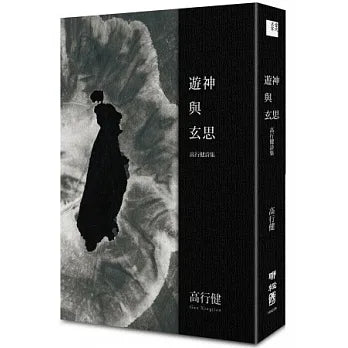高行健:「《遊神與玄思──高行健詩集》是我第一本詩集,
雖然從童年起就不斷寫詩,卻極少發表。」
等了二十年,這本詩集終於問世了!
2000年諾貝爾文學獎得主、國際全方位藝術家、華人世界知名作家高行健並收錄最新的水墨畫作,供讀者典藏。
「你的詩,有一種詩意的透徹!」(著名文學理論家、作家劉再復對高行健的詩如是評論)
這是一本值得讀者珍藏的詩集,
帶領你走入詩、語言與藝術的凝練之境!
高行健不僅是一位藝術家,也是一位詩人,他以「詩意的透徹」抵禦生命他關注詩歌語言的通達流暢和樂感,若干作品不惜修改多年。
《遊神與玄思──高行健詩集》也充分展示了高行健在語言表達上的追求與思索:「我的詩都回歸口語,一聽就懂,應該說沒有一句要費心琢磨的時西方現當代文學和語言學的譯介更促使中文進一步歐化。我反其道行之,追求的是現代漢語的通達和流暢。」
作家)認為:高行健「的詩回應了東西方人類普遍的生存困境,而且沒有一句空喊,沒一句矯情,毫無造作… …令人止不住產生共鳴。如果說,艾略特捕捉到的是人類世界的「頹敗」,那麼,高行健捕捉到的是人類現時代價值淪喪的『虛空』。」
作者簡介
高行健
國際著名的全方位藝術家,集小說家、劇作家、戲劇與電影導演、畫家與思想家於一身, 1940 years ago, 1997 years old, 1997 years old, 2000 years old文學獎,成為首位獲此殊榮的華人作家。他的小說與戲劇關注人類的生存困境,瑞典學院在諾貝爾獎授獎頌辭中以「普世的價值、刻骨銘心的洞察力和語言的豐富機智」加以表彰。
他的長篇小說《靈山》和《一個人的聖經》法譯本曾轟動法國文壇,法新社評為二十世紀末中國文學的里程碑,現已譯成三十七種文字,全世界廣為發行。他的劇作包括《車站》、《野人》、《彼岸》、《逃亡》、《生死界》、《夜遊神》、《山海經傳》、《八月雪》、《叩問死亡》和《高行健戲劇集》等十八種,已在歐、亞、北美洲、南美洲和澳大利亞等地頻頻上演。他的文學藝術思想論著《沒有主義》、《另一種美學》和《論創作》,都見解犀利,獨立不移。他的繪畫作品現出超然幽深的內心世界,在歐亞和北美的許多美術館、藝術博覽會和畫廊舉辦了八十多次展覽,出版了三十本畫冊。
不僅諾貝爾文學獎,他還榮獲法國藝術與文學騎士勳章、法國榮譽騎士勳章、義大利費羅尼亞文學獎、義大利米蘭藝術節特別致敬獎、美國終身成就學院金盤獎、美國紐約公共圖書館雄獅獎、盧森堡歐洲貢獻金獎;香港中文大學、法國普羅旺斯大學、比利時布魯塞爾自由大學,臺灣的臺灣大學、中央大學和中山大學等皆授予他榮譽博士。他舉辦了大型藝術創作活動「高行健年」,2008年法國駐香港澳門總領事館和香港中文大學為他舉辦了「高行健藝術節」。
